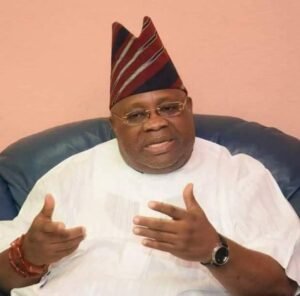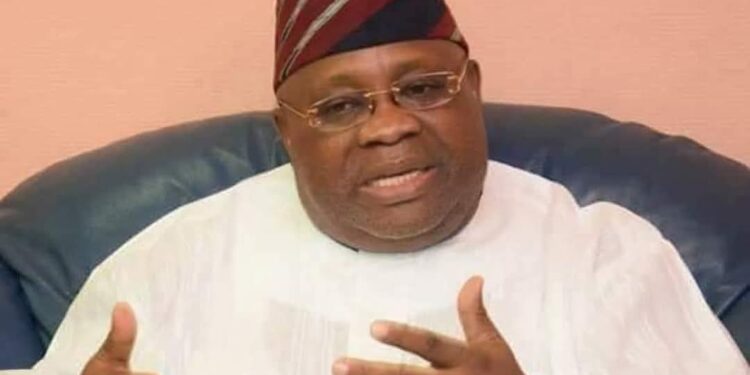
By Ibrahim Kegbegbe
The ongoing violent clashes between Ilobu and Ifon communities in Osun State have thrown Governor Ademola Adeleke into a crisis that could threaten his political future if not urgently addressed. The situation, which has been fueled by deep-seated land disputes, has once again escalated into bloodshed, raising questions about the governor’s ability to manage conflicts effectively.
The governor’s decision to impose a dusk-to-dawn curfew from 6 PM to 6 AM has been met with skepticism, as past curfews have done little to prevent violence. Critics argue that unless Adeleke takes decisive action beyond temporary measures, the crisis could spiral out of control—potentially leading to a political backlash similar to what recently happened in Rivers State, where Governor Siminalayi Fubara narrowly escaped suspension due to political instability and internal conflicts.
A Looming Political Crisis?
The Ilobu-Ifon crisis has persisted for decades, but under Adeleke’s administration, it has worsened despite earlier peace agreements. The October 2023 peace deal, facilitated by the state government, now appears ineffective as renewed violence erupted in January 2025, leaving casualties in its wake.
Political analysts warn that if the governor fails to implement a concrete resolution plan, his leadership could face severe scrutiny. “Adeleke cannot afford to handle this crisis with the usual political statements and curfews. If Osun State plunges into a deeper security crisis, it will not only affect his administration’s credibility but could also invite political maneuvering from the opposition,” said a political observer, who requested anonymity.
The Risk of a Wider Fallout
The parallels between Osun’s crisis and Rivers State’s political turmoil are striking. Governor Fubara, despite his initial popularity, found himself at odds with lawmakers and political godfathers over governance disputes, leading to attempts to suspend him from office. In Osun, opposition parties and powerful political figures are already watching Adeleke’s handling of the Ilobu-Ifon crisis closely, and any sign of weakness could be exploited to destabilize his administration.
Residents of both warring communities have expressed frustration over the government’s lack of decisive intervention. “We are tired of curfews that do nothing. People are still dying, properties are being destroyed, and the government is just issuing statements. Is Adeleke waiting for this crisis to spread before taking real action?” asked a resident of Ilobu.
Similarly, a leader in Ifon warned, “If the governor fails to act beyond media appearances, we could be looking at a long-term conflict that will consume his administration.”
What Adeleke Must Do to Avoid Political Disaster
Security experts and community leaders have suggested urgent steps the governor must take to prevent the situation from becoming his administration’s Achilles’ heel:
1. Direct Intervention – Rather than leaving matters to security forces, Governor Adeleke must personally engage both communities and their traditional leaders in a transparent conflict resolution process.
2. Definitive Land Demarcation – The government must take responsibility for clearly mapping out and legally enforcing boundaries to prevent future disputes.
3. Accountability for Perpetrators – A strong stance on arresting and prosecuting those inciting violence will send a message that the government is in control.
4. Political Strategy – Adeleke must ensure that this crisis does not become a tool for opposition forces to weaken his grip on Osun politics, as seen in Rivers State.
With tensions rising and opposition forces waiting for a political misstep, the governor is at a crossroads. Will he step up to secure peace and maintain his political standing, or will he allow the Ilobu-Ifon crisis to define his tenure? The coming days will determine whether Adeleke emerges stronger or becomes the latest casualty of political fallout in Nigeria’s volatile governance landscape.
















